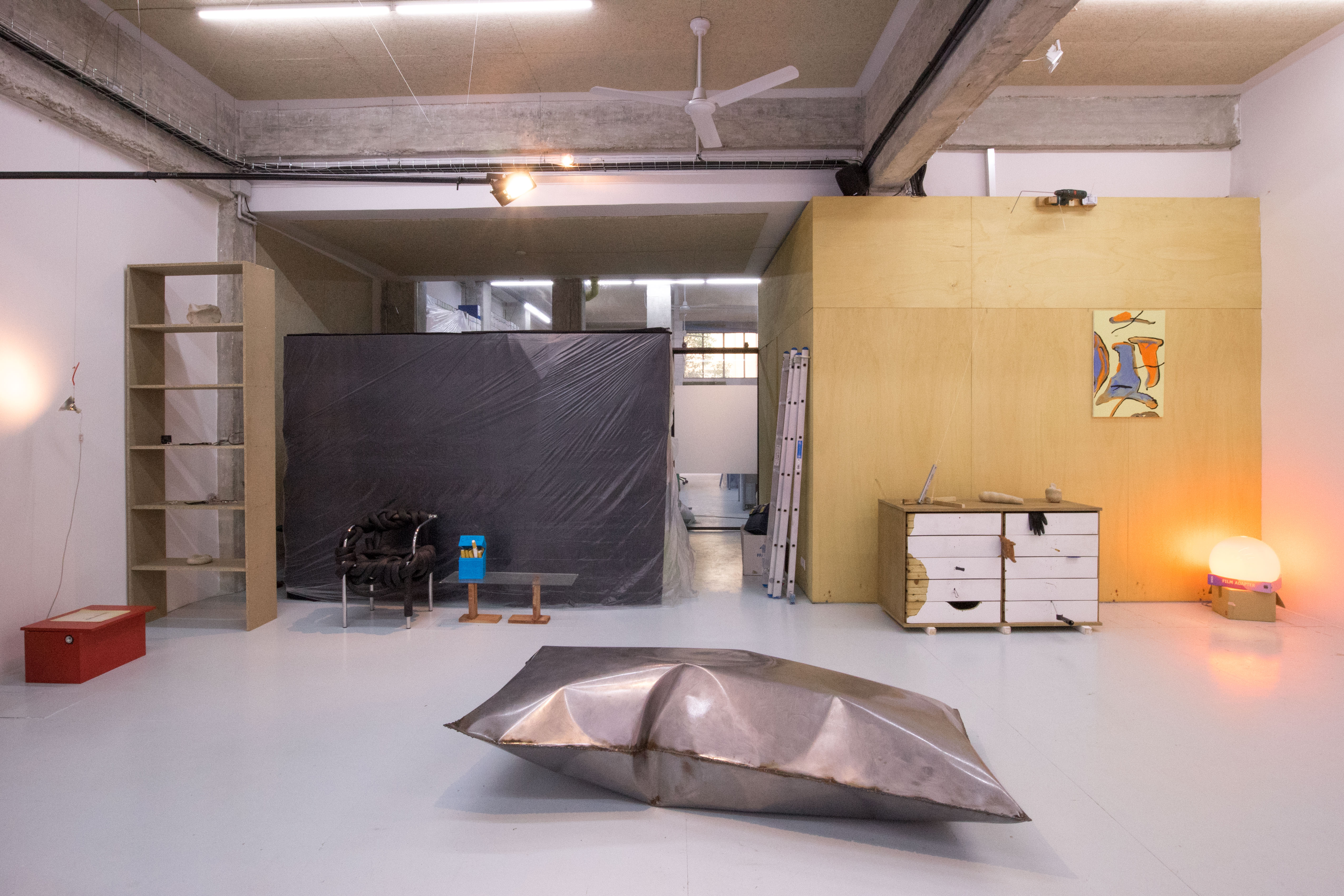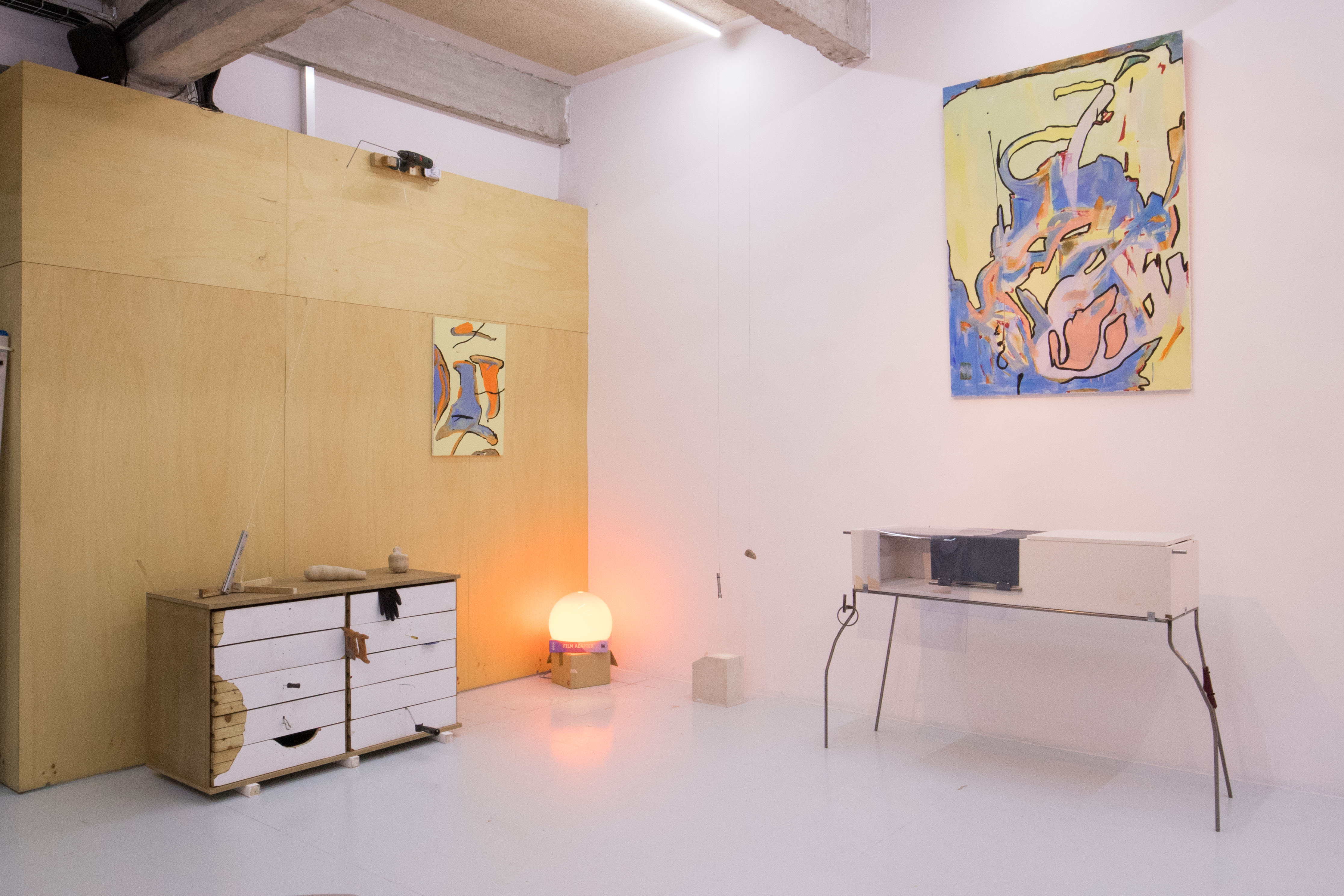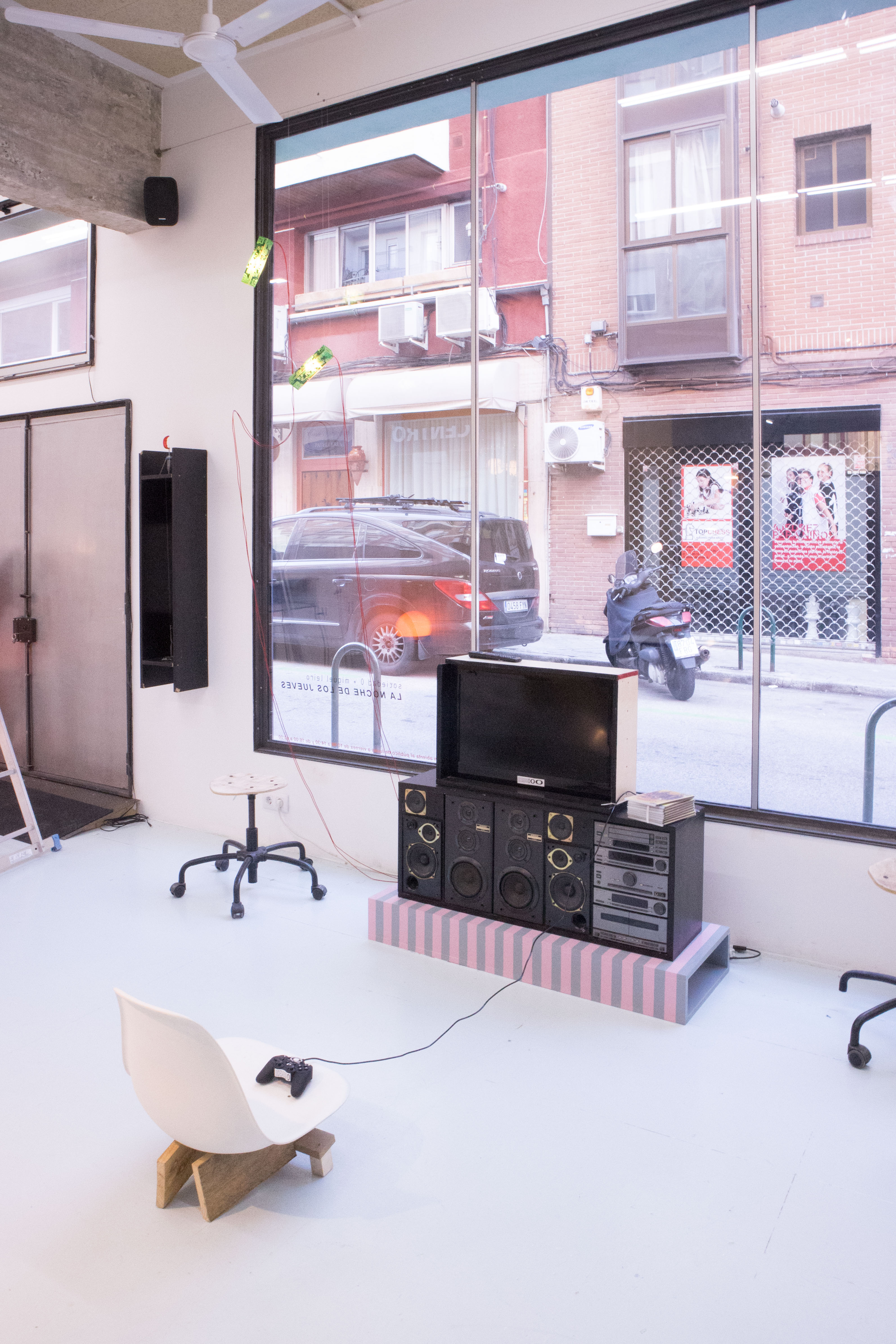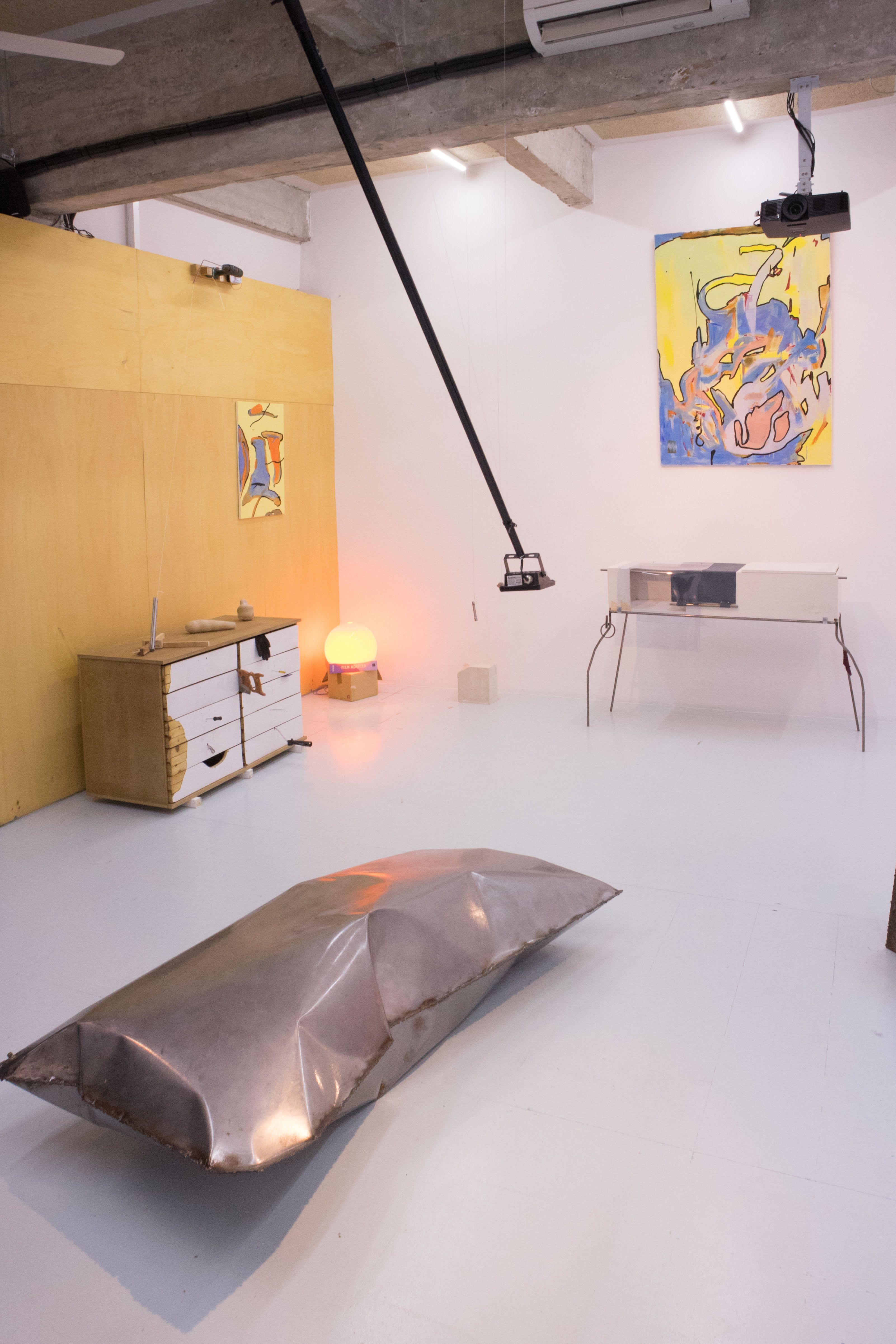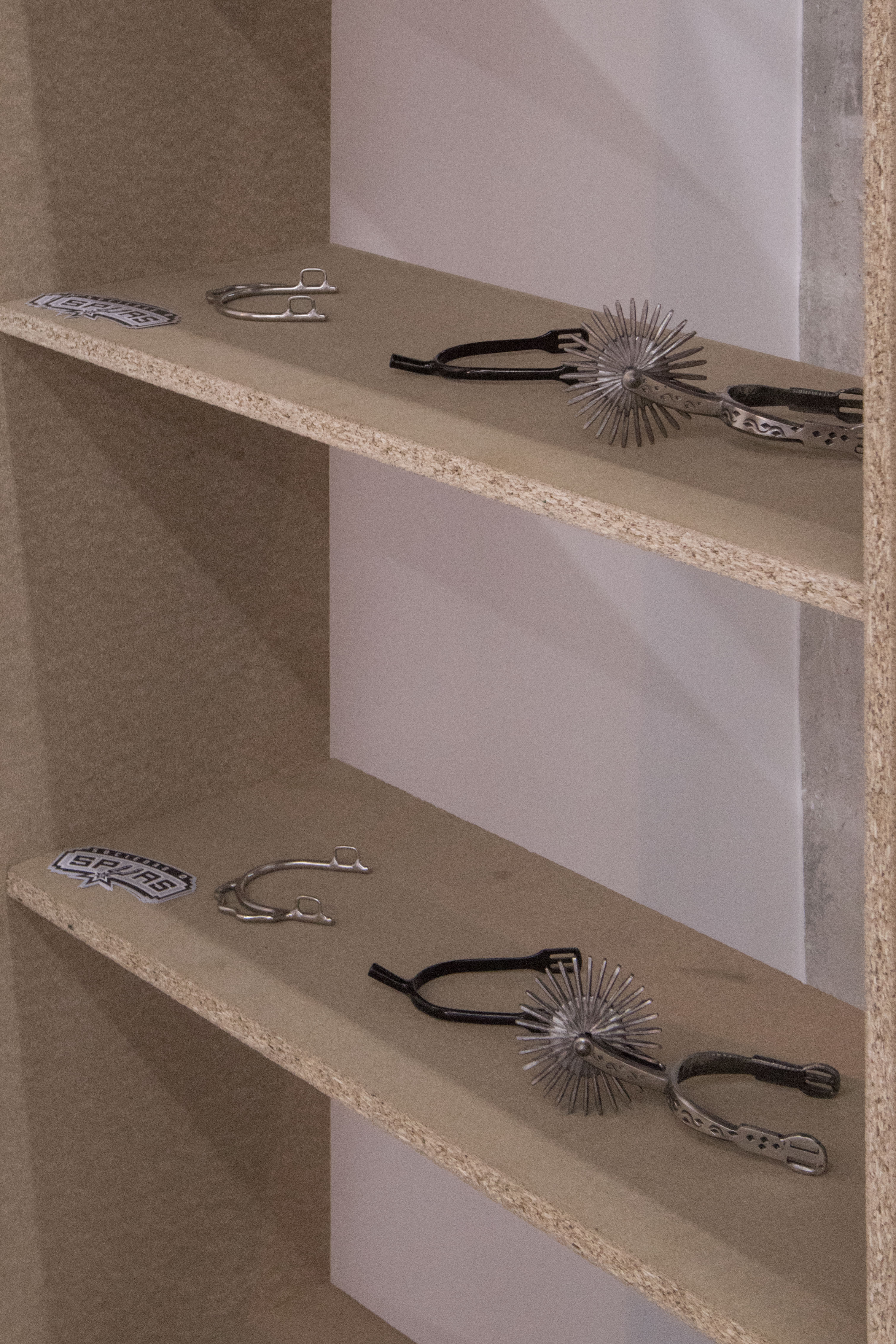︎︎︎ - ERRATA : Books do Clutter a Room - at Mast Books - May 2019
Errata is an exhibition hosted at Mast Books, celebrating an assemblage of works that question the physical condition of both books and design objects. It will bring together new work from various Spanish designers, ranging in material and typology.
In the 1971 novel by Anthony Powell, a central character, Bagshaw, is nicknamed “Books”, a short version of his full nickname, “Books Do Furnish A Room”. Several stories circulate about how Bagshaw received this unusual nickname. In one story, he got too drunk at a cocktail party, and pulled down an entire bookcase in an attempt to stay upright. Laying in heap with books all around him, he quipped “Books do furnish a room, don’t they?” In a different version, Bagshaw is caught in bed with the wife of his boss, a London literary editor. To break the awkward silence, Bagshaw says, “Books do furnish a room, don’t they?”, and conversation shifts to literary work, allowing the trio to ignore the “elephant in the room”.
How should we understand the role of books in furnishing our day-to-day? They present an image of intelligence and knowledge, while mainly playing the role of a placeholder, accumulating dust in otherwise empty shelves. Just like the books we all say we read, a person possessing an object and using it tells us a lot about that person. On the contrary, a person having an object and not using it also tells us a lot about that person. Through the conception of specifically designed objects, Errata presents an expanded perspective, developing this dynamic between functional and perceived use. A collision of the book and design object.
The designs shown are each inspired by different conceptions of the book and object. Many serve as facilitators, each proposing a new method for presenting, maintaining and accessing the usage of books. Even so, there is no predefined notion or expectation of functionality. The proliferation of New York based designers working within a self-production economy is a strong example of this tendency within the design field towards tackling concepts, instead of specific problems. This has normalized a mistake-laden design process, where decisions and discoveries are not searched for, but stumbled upon. The exhibition gathers Spanish Designers with similar practices, hoping to further examine the current state of ‘experimental’ design.
With this exhibition, we do not intend to answer any of the challenges stated above, but let them help us to delve into a new area of inquiry: hat role does the mistake play in contemporary design? How does it affect the communicability of our objects? How do we associate our own interests and peculiarities to the objects that we are surrounded by? Can we ‘read’ objects? To what extent can they offer something else, past their mere functionality? What is this ‘else’? Designers participating: Pablo Alabau, Tomás Alonso, Colectivo la Cosa, Jorge Penadés, Sara Regal and Julen Ussía
![]()
![]()
![]()
![]()
![]()
Errata is an exhibition hosted at Mast Books, celebrating an assemblage of works that question the physical condition of both books and design objects. It will bring together new work from various Spanish designers, ranging in material and typology.
In the 1971 novel by Anthony Powell, a central character, Bagshaw, is nicknamed “Books”, a short version of his full nickname, “Books Do Furnish A Room”. Several stories circulate about how Bagshaw received this unusual nickname. In one story, he got too drunk at a cocktail party, and pulled down an entire bookcase in an attempt to stay upright. Laying in heap with books all around him, he quipped “Books do furnish a room, don’t they?” In a different version, Bagshaw is caught in bed with the wife of his boss, a London literary editor. To break the awkward silence, Bagshaw says, “Books do furnish a room, don’t they?”, and conversation shifts to literary work, allowing the trio to ignore the “elephant in the room”.
How should we understand the role of books in furnishing our day-to-day? They present an image of intelligence and knowledge, while mainly playing the role of a placeholder, accumulating dust in otherwise empty shelves. Just like the books we all say we read, a person possessing an object and using it tells us a lot about that person. On the contrary, a person having an object and not using it also tells us a lot about that person. Through the conception of specifically designed objects, Errata presents an expanded perspective, developing this dynamic between functional and perceived use. A collision of the book and design object.
The designs shown are each inspired by different conceptions of the book and object. Many serve as facilitators, each proposing a new method for presenting, maintaining and accessing the usage of books. Even so, there is no predefined notion or expectation of functionality. The proliferation of New York based designers working within a self-production economy is a strong example of this tendency within the design field towards tackling concepts, instead of specific problems. This has normalized a mistake-laden design process, where decisions and discoveries are not searched for, but stumbled upon. The exhibition gathers Spanish Designers with similar practices, hoping to further examine the current state of ‘experimental’ design.
With this exhibition, we do not intend to answer any of the challenges stated above, but let them help us to delve into a new area of inquiry: hat role does the mistake play in contemporary design? How does it affect the communicability of our objects? How do we associate our own interests and peculiarities to the objects that we are surrounded by? Can we ‘read’ objects? To what extent can they offer something else, past their mere functionality? What is this ‘else’? Designers participating: Pablo Alabau, Tomás Alonso, Colectivo la Cosa, Jorge Penadés, Sara Regal and Julen Ussía






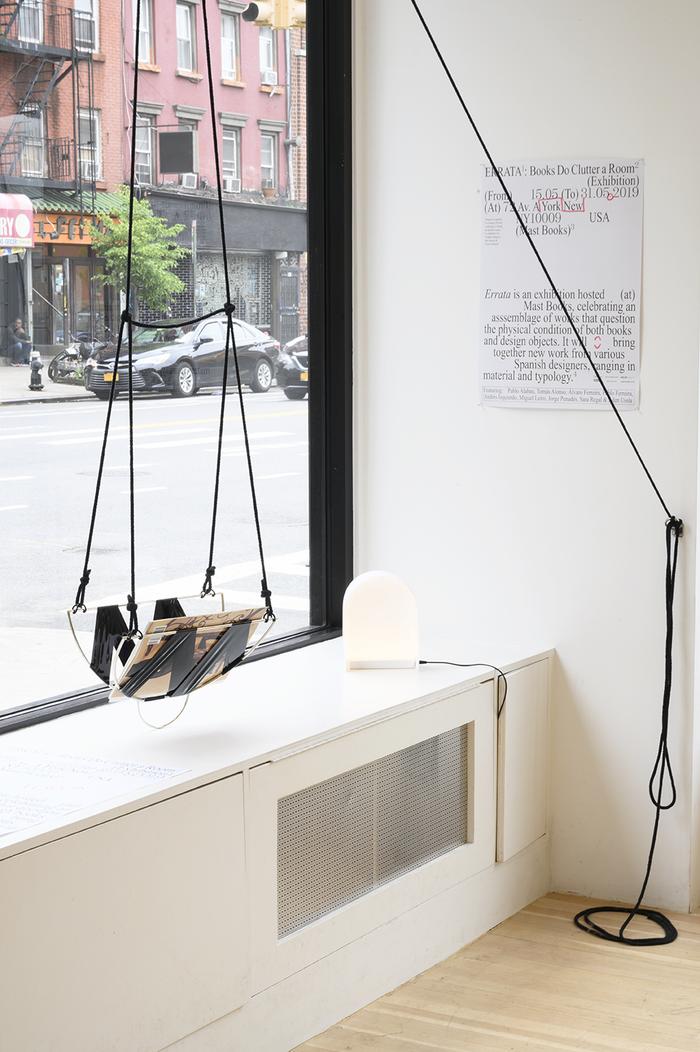
︎︎︎- LA NOCHE DE LOS JUEVES - Sociedad 0 - at space to be - 2018
Si buscas Sociedad0 en Google, aparece un Instagram, una ubicación y su correspondiente vista desde “Streetview” con dos fotos de una nave industrial vacía. En ese espacio vive y trabaja el colectivo desde Noviembre de 2017 como continuación del proyecto que empezó en otra nave de PobleNou (Barcelona).
_2B space to be tiene el placer de presentar la primera exposición en Madrid del colectivo Sociedad0. Esta exposición ha sido comisariada por Miguel Leiro.
“La noche de los Jueves” empezó cerca de un año. Se salía en grupo a recolectar los restos de la industria y los hogares de Barcelona para poder construir con amigos y compañeros de universidad hasta las 5 de la mañana, cuando todo el mundo presentaba su pieza con desayuno en mano
En 1974 Andrea Branzi decía en Radical Architecture. Il rifuto del ruolo disciplinare (Casabella 386): “Una nueva arquitectura no puede derivarse de un simple acto de planificación, sino más bien del uso modificado que los individuos pueden crear de su propio entorno”. En 2018, Sociedad0 vive y trabaja en comunidad. Se ha generado un espacio en el que poder vivir, donde dormir, almacenar ropa, trabajar. Se han construido alcobas y cocinas, la comida se gestiona a través de una app. Uno cocina y limpia para Sociedad 0. Cada individuo que está generando dentro la concibe a su manera. También el que se ha pasado. Se pasa frío en invierno y calor en verano. Se define por ausencias y estancias. Por haber vivido 7 meses en tiendas de campaña.
La exposición en SPACETOBE muestra esta idea de abrirse por primera vez lo que ha ido pasando durante estos dos años dentro de Sociedad0 a través de la proyección de elementos del hogar y otros experimentos, en los que el ‘diseño’ se plantea como una herramienta de necesidad básica, atendiendo al modelo de vida a proyectar y experimentar, en un espacio que se construye infinitamente con lo que se tiene al alcance.
“La noche de los Jueves” empezó cerca de un año. Se salía en grupo a recolectar los restos de la industria y los hogares de Barcelona para poder construir con amigos y compañeros de universidad hasta las 5 de la mañana, cuando todo el mundo presentaba su pieza con desayuno en mano
En 1974 Andrea Branzi decía en Radical Architecture. Il rifuto del ruolo disciplinare (Casabella 386): “Una nueva arquitectura no puede derivarse de un simple acto de planificación, sino más bien del uso modificado que los individuos pueden crear de su propio entorno”. En 2018, Sociedad0 vive y trabaja en comunidad. Se ha generado un espacio en el que poder vivir, donde dormir, almacenar ropa, trabajar. Se han construido alcobas y cocinas, la comida se gestiona a través de una app. Uno cocina y limpia para Sociedad 0. Cada individuo que está generando dentro la concibe a su manera. También el que se ha pasado. Se pasa frío en invierno y calor en verano. Se define por ausencias y estancias. Por haber vivido 7 meses en tiendas de campaña.
La exposición en SPACETOBE muestra esta idea de abrirse por primera vez lo que ha ido pasando durante estos dos años dentro de Sociedad0 a través de la proyección de elementos del hogar y otros experimentos, en los que el ‘diseño’ se plantea como una herramienta de necesidad básica, atendiendo al modelo de vida a proyectar y experimentar, en un espacio que se construye infinitamente con lo que se tiene al alcance.



